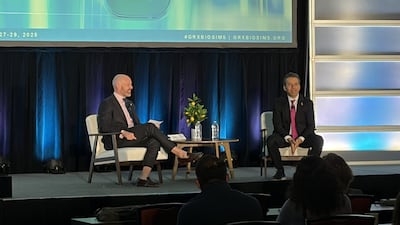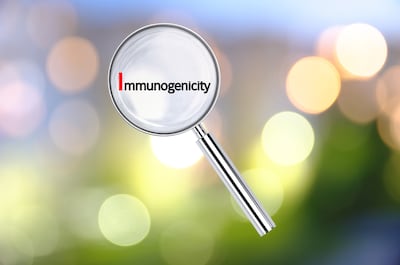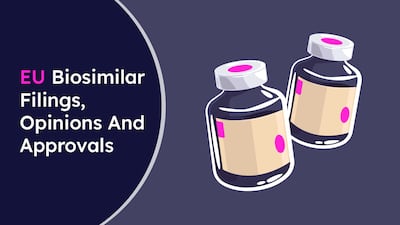Biosimilars
‘Over the hump, and about to pick up speed’ is how Sarah Yim, director of the FDA’s Office of Therapeutic Biologics and Biosimilars, described the category as she sets out the agency’s plans for more biosimilar progress domestically and internationally in 2026.
The European Commission sees the value of biosimilars, but its biotech vision lacks competitive incentives to build on the region’s relevance.
The health technology assessment institute said its recommendation for the multiple sclerosis drugs, Tysabri and Tyruko, highlighted its continued efforts to drive the adoption of biosimilars across the National Health Service.
In the wake of recent FDA guidance setting out a streamlined approach to biosimilar approval, developers have spent the past month responding. While most reactions have been enthusiastic, some firms urged caution.
The European Medicines Agency has said that Anavex’s Alzheimer’s candidate should not be authorized for use in the EU due to safety and efficacy concerns. Seven other products, including two new cancer drugs, received positive opinions.
A Teva official suggested the increasing reliance on analytical characterizations rather than clinical studies to show biosimilarity should warrant user fee structure changes.
FDA’s proposed easing of biosimilar pathways is a mixed blessing for CROs even as it, along with tariff threats and funding scarcity, has led to paused clinical studies. Parexel’s India head talks about keeping up with the regulation and other AI-led changes in this interview.
After 10 years of adding suffixes to all new biologic and biosimilar nonproprietary names, FDA officials are considering whether it is still necessary for pharmacovigilance purposes.
Elevating the Office of Therapeutic Biologics and Biosimilars out of the Office of New Drugs and providing signatory authority could help speed biosimilar reviews, OTBB Director Sarah Yim said.
Association for Accessible Medicines CEO John Murphy told the Pink Sheet that the FDA may need to consider phasing in the requirements for the new ANDA priority voucher incentive program if it wants sponsors to apply in the near-term.
Pink Sheet editors discuss FDA announcements that clinical efficacy studies would no longer be required for biosimilar development, as well as the additional information from the agency on the intent of its “Simple Reform” of the inspection staff.
The guidance is part of the FDA’s effort to encourage more biosimilar development by streamlining approval requirements and lowering development costs.
The new guidance says comparative clinical trials are not a prerequisite for all biosimilars, a notable step for the FDA, but the commissioner added that biosimilar prices should be significantly lower than the reference product at launch.
FDA officials said the pilot program needs more time to determine its return on investment as user fee renewal talks near.
US FDA’s new top drug regulator is promising to update regulatory standards for biosimilars to make the process look more like the generic drug pathway, where ‘we just characterize the molecule.’ Advancements in characterization are driving the ‘analytical revolution.’
A list of EU biosimilar filings, CHMP opinions and EU marketing authorizations, including details of the biosimilar company, the brand name/INN, indication(s), the reference product/company, and the date and type of event.
Multiple Korean ministries, biopharma companies, and other officials convened at a bio innovation roundtable to discuss strategies to emerge as a global biopharma powerhouse.
The fall start of PDUFA and GDUFA negotiations could impact the agreement review process and other parts of the schedule intended to ensure it reaches Congress on time.
The importance of generic and biosimilar medicines is being recognized by the UK government for the first time. However, Mark Samuels, CEO of Medicines UK, the trade body representing the off-patent industry, says companies are still face multiple hurdles in the market.
A calculation used to determine whether the FDA has the staff to handle its workload also was not included in the description of prescription drug user fee calculations.




















